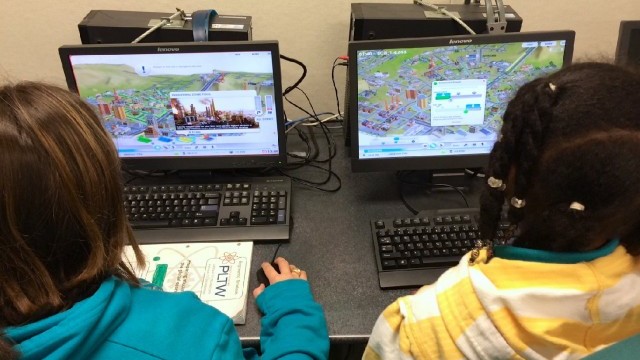Most tests represent a snapshot of one moment in the trajectory of a student’s academic journey, extrapolating what the student has learned overall. There are plenty of ways educators are trying to supplement those tests with more nuanced, formative assessments. With the advent of game-based learning, educators have been investigating how data collected from video game play could provide insight into the way students think as they explore new concepts.
A report from the game developers, learning specialists and psychometricians involved with GlassLab’s project SimCityEDU finds that there’s great potential for games and assessment, but a lot of work to be done before games are used as primary assessment tools.
SimCityEDU is a game created to introduce environmental science to middle school students. Through game play, students are asked to conduct interviews, review research, interpret information they’ve gathered, draw conclusions, graph data, and make decisions about how to best protect the environment in a prototype city, and with each step, the game assesses every choice.
The goal is to move beyond tests that give little meaningful information about how or what students have learned, instead using data gathered from actions in a game to paint a picture of growth of knowledge. The report finds that this game-based assessment is a promising new field, but the work is still in its initial phases. The report finds that the close collaboration of all parties is crucial. Psychometricians, game designers, and learning specialists all need to work together to understand how to create the best learning experience. Just as game creators should work closely with teachers when creating the games, rather than just handing off their finished products, psychometricians need to be part of the designing and creating phases, too.
“The tests that we use today in school don’t test for things that are that useful,” said Anya Kamenetz, author of forthcoming book on future of assessment called The Test and author of the GlassLab report’s executive summary, (and a contributing writer to MindShift). "Accountability tests [measure] reading and math," she said, but students need to know so much more than those subjects in the world outside of school. Games more accurately test those less tangible qualities by building higher order thinking skills into the game play.

